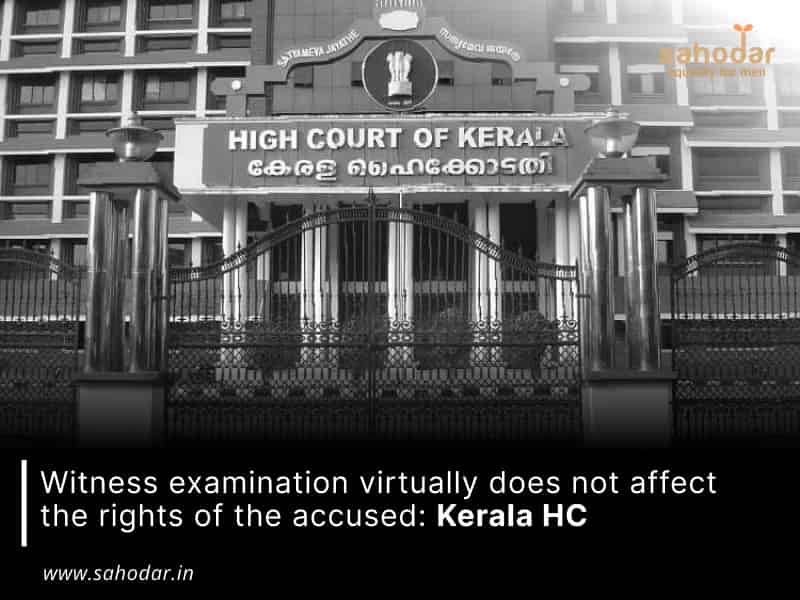According to the Court, the objective of the Electronic Video Linkage Rules for Courts (Kerala), 2021 is to enable remote testimony of witnesses who are unable to appear in person.
The case of Gopal C v Central Bureau of Investigation concluded that the Electronic Video Linkage Rules for Courts (Kerala), 2021 (2021 Rules) allow for witness examination through video conference and that such a method does not infringe on the rights of the accused individual.
According to Justice A Badharudeen, the Electronic Video Linkage Rules for Courts (Kerala), 2021 were created to facilitate the examination of witnesses who are unable to attend court in person, thereby avoiding delays and unnecessary costs. The Court held that the mode of witness examination, whether in person or through video linkage, does not impact the accused’s right to cross-examine the witness, as the primary goal of the rules is to ensure fair and efficient proceedings.
Furthermore, the Court highlighted that the Electronic Video Linkage Rules for Courts (Kerala), 2021 also permit a party or their representative to be present at a remote location during the recording of evidence, provided they arrange and bear the associated costs. The Court noted that Rule 8(24) was implemented by the drafters of the rules to address concerns such as those raised by the petitioner, and if necessary, the provision can be utilized under the Court’s direction.
In a case brought by an accused individual from a 2012 case, the Court reviewed a special court’s decision to permit a witness to testify remotely via online means. CBI, represented by the public prosecutor, had requested the special court to allow the first witness, who was residing in Dubai, to provide evidence through video conference due to the inability to secure their physical presence in a timely and cost-effective manner. The accused individual challenged this decision.
During the proceedings, the petitioner’s legal representative contended that the physical presence of the witness is necessary to ensure effective trial proceedings as it allows for observation of the witness’s demeanor and approach. Additionally, the counsel argued that the presence of the de facto complainant is essential to protect the rights of the accused.
However, the Deputy Solicitor General of India (DSGI) disputed these claims, asserting that the Electronic Video Linkage Rules for Courts (Kerala), 2021 permit the physical presence of witnesses in all circumstances.
The Court acknowledged that Rule 8(25) of the rules permits the examination of witnesses through video conference.
The Court determined that the use of video conference for witness examination complies with the provisions of various laws, such as the Criminal Procedure Code, Criminal Rules of Practice of Kerala, and Civil Rules of Practice of Kerala, which require personal appearance for any legal proceedings in subordinate courts and tribunals.
The Court further noted that Rule 8(23) permits remote testimony if the witness’s presence cannot be obtained without undue delay, expenses, or for other legitimate reasons.
As a result, the High Court declined to intervene in the special judge’s decision to allow the de facto complainant to testify via video conference.
Source: https://www.barandbench.com/news/examination-witness-virtual-mode-does-not-affect-rights-accused-kerala-high-court

